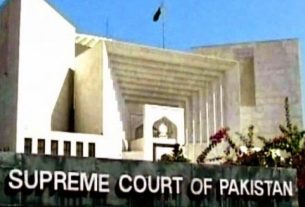ISLAMABAD: According to Pakistan’s news Media; The International Monetary Fund (IMF) on Thursday distanced itself from Pakistan’s decision to secure a $600 million commercial loan at an 11% interest rate, clarifying that the move was not a prerequisite for the approval of the recently sanctioned $7 billion bailout package.
“To our knowledge, no commercial financing at 11% has been undertaken, and if there is such, it is not necessarily linked to the program’s financing assurances,” stated an IMF spokesperson in Islamabad.
The IMF’s clarification came days after Finance Minister Muhammad Aurangzeb informed the National Assembly Standing Committee on Finance, in a closed-door session, that the government had arranged the high-interest loan for IMF program purposes. Aurangzeb also suggested that the government might not draw down on the loan, which was secured from Standard Chartered Bank, indicating a potential shift in strategy.
Earlier reports by The Express Tribune revealed that Pakistan had agreed to the $600 million commercial loan to bridge its external financing gap, a move deemed necessary to secure a date for the IMF Executive Board meeting. The IMF had identified a financing shortfall of over $2 billion, compelling Pakistan to seek commitments from European and Gulf banks, alongside exploring additional project financing.
On Wednesday, the IMF approved the $7 billion bailout package and authorized the release of the first tranche of around $1 billion. Government insiders disclosed that details of the Standard Chartered loan offer were shared with the IMF, including its steep interest rate. Despite the IMF’s initial reservations, Pakistani authorities assured the Fund of alternative financing options.
Standard Chartered Bank had proposed two loans, each amounting to $300 million—one designated for liquefied natural gas (LNG) supply and the other for syndicated financing. However, following the IMF’s public statement distancing itself from the loan, the likelihood of Pakistan drawing on this facility has significantly diminished, raising questions about the government’s decision to consider and present the offer to the IMF in the first place.
The IMF had conditioned the board meeting on solid commitments to cover the $2 billion financing gap. Pakistan received a date only after securing agreements from four bilateral creditors to roll over $12.7 billion worth of deposits. The board meeting was scheduled for September 25, following the confirmation of these arrangements.
Minister of State for Finance Ali Pervaiz Malik highlighted the gravity of Pakistan’s fiscal situation, stating that the country needs $100 billion over the next four years to service its maturing debt. For the current fiscal year alone, $26 billion is required to stay afloat, with $16 billion to be rolled over by bilateral creditors.
Finance Minister Muhammad Aurangzeb, in an interview with Voice of America, acknowledged the IMF’s concerns regarding the re-profiling and rollover of Chinese debt, which forms a substantial portion of Pakistan’s external liabilities. He admitted that past commitments to the IMF on structural reforms in state-owned enterprises, privatization, energy, and taxation were not fulfilled, eroding trust between the two parties.
On the same day, the Asian Development Bank (ADB) cautioned that rising political and institutional challenges could impede the implementation of reforms Pakistan has pledged to the IMF. These reforms are crucial to ensuring continued support from external lenders. Key conditions under the IMF program include achieving fiscal viability in the power sector, privatizing loss-making entities, and enhancing tax revenues.
In a notable shift, the new IMF program extends its purview to provincial finances, directly impacting nearly a dozen conditions linked to provincial revenue targets. This expansion underscores the comprehensive nature of the reforms necessary to stabilize Pakistan’s economy and secure sustainable financial support from international lenders.





